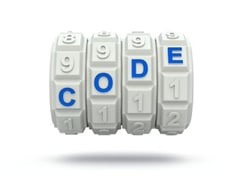EHR Workflow: What to do While You Wait for ICD-10
 October 1, 2015. That's when ICD-10 will officially replace ICD-9. While it may seem like you have a long time before that comes, it will be here before you know it. Making this transition isn't going to be an easy feat for your practice, and it's not something you have a choice in, it's required by all covered entities. While it may seem like a lot of work, the change is necessary!
October 1, 2015. That's when ICD-10 will officially replace ICD-9. While it may seem like you have a long time before that comes, it will be here before you know it. Making this transition isn't going to be an easy feat for your practice, and it's not something you have a choice in, it's required by all covered entities. While it may seem like a lot of work, the change is necessary!
ICD-10 provides more specific data than ICD-9 codes and better reflects current healthcare practices. The codes will better inform healthcare providers of patient history that will help improve the effectiveness of case management and care functions across all specialties. The new code set is going to help refine and improve health reporting analytics, create more detailed information, increase coding flexibility, and operational processes.
Managing Your Time and EHR Workflow for ICD-10
Seek Resources and Create a Plan
On the bright side, because the deadline was pushed back a year you've still got time to go ahead and get your staff, your EHR workflow, and your office prepared for the switch. You can start by creating a project plan. This will help you establish a management structure and allow you to set realistic timelines and goals.
And remember, you're not alone. All providers are going through this so there are lots of resources out there that you should take advantage of. Here's a few to get you started:
- ICD-10 Transition: An Introduction
- ICD-10 Where You Need to Be Now
- The Small Practice's Route to ICD-10
Talk to Your Vendors
One of the first things that you can do to prepare for ICD-10 is talk to your software vendors. Find out how they plan to deal with the change, and what they can offer you. Are there going to be added costs involved with the change to upgrade to the latest version of the software? Are upgrades covered in your current contract? Will additional customer support and training be provided? And while you're talking to your vendors, make sure that you're talking to your staff too. The switch is going to impact your whole practice so make sure to keep everyone on the same page and up to date with any changes or processes in your office.
Test & Plan Ahead
As part of your project timeline you should set aside some time to test the new processes within your practice with your billing service and then also with your payers. Outline a scheduled testing timeline with dates for when the test should be completed. Now is also the time to start planning for any bumps in the road that you might run into. Implementing any new process in a practice, especially one as big as ICD-10, leaves a lot of room for mistakes and adjustments. Be prepared, and expect to have some delays in your reimbursements as your practice adjusts.
Look into Systems that are Already Prepared
If your practice is looking to modernize with a practice management and EHR solution, ICD-10 is something you should consider when looking for a new software. Some modern practice management and EHR systems are going to have ICD-10 codes built into the functionality of the software. While that doesn't mean you won't have to learn anything about ICD-10, it is something that will be a huge help when the transition rolls around.
If you're in the market for new software and want something that's prepared for ICD-10, check out Uprise.

